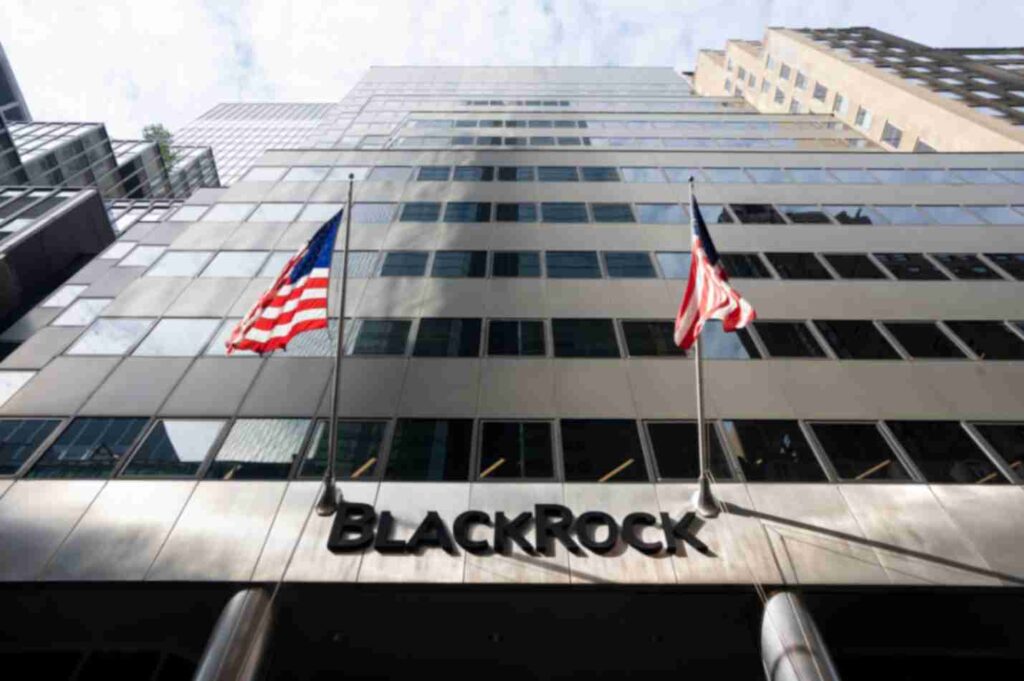In a world where digital currencies are gaining unprecedented traction, the strategies of major institutional players like BlackRock are crucial indicators for individual investors. With the global financial landscape continually evolving, BlackRock’s prioritization of just two cryptocurrencies—Bitcoin (BTC) and Ethereum (ETH)—is noteworthy. This focus underscores the firm’s commitment to these assets as key components of their diversified investment portfolios.
Understanding BlackRock’s Strategic Focus on Bitcoin and Ethereum
As the cryptocurrency market matures, BlackRock’s moves in this space offer valuable insights into future trends. In the third quarter of 2025, BlackRock expanded its cryptocurrency holdings by a staggering $22.46 billion, a surge predominantly fueled by increased investment in Ethereum alongside consistent Bitcoin purchases, according to Finances Zippy’s Q3 Cryptocurrency Market Report.
Why BlackRock’s Focus on Bitcoin and Ethereum Matters
BlackRock’s iShares Bitcoin Trust (IBIT) has played a significant role in U.S. ETF markets, leading in terms of fund flows. Without IBIT, the market for U.S. spot Bitcoin ETFs would have experienced a net negative year, illustrating the considerable institutional demand converging around this product.
The Enduring Attraction of Bitcoin
Bitcoin continues to be BlackRock’s foundational investment in the crypto domain. Known for its liquidity, broad acceptance, and regulatory friendliness, Bitcoin is often likened to “digital gold.” This perception appeals to portfolio managers interested in assets that hedge against market fluctuations. BlackRock CEO Larry Fink has even suggested that Bitcoin’s value could ascend to $700,000, contingent on sustained ETF inflows. Bitcoin’s stability, even if lacking the explosive potential of newer coins, solidifies its role as the industry benchmark, particularly with institutions like BlackRock maintaining their investments.
Ethereum: The Growth Catalyst
While Bitcoin provides a solid foundation, Ethereum represents growth and innovation within BlackRock’s crypto strategy. Recent reports indicate that BlackRock’s Ethereum holdings have increased significantly, surpassing the growth rate of its Bitcoin investments. Ethereum’s value extends beyond being a simple store of value; it acts as a backbone for numerous decentralized finance (DeFi) applications, staking, tokenization, and smart contracts. Therefore, Ethereum is increasingly viewed as the “infrastructure bet” in the cryptocurrency world, facilitating the migration of tokenized U.S. Treasuries and other real-world assets onto its decentralized platform.
During October 2025, BlackRock demonstrated this dual-focused approach, with their digital asset holdings expanding from $103.8 billion to $108.3 billion. This growth was driven by substantial acquisitions of Bitcoin and Ethereum, with 36,570 BTC (approximately $3.98 billion) and nearly 218,000 ETH (about $520 million) added to their portfolio.
Frequently Asked Questions
Why is Bitcoin considered a stable investment by institutions like BlackRock?
Bitcoin is regarded as a stable investment due to its high liquidity, widespread acceptance, and regulatory compatibility. Its reputation as “digital gold” attracts institutions looking for a reliable hedge against economic instability.
What makes Ethereum a promising addition to BlackRock’s portfolio?
Ethereum is valued for its versatility and utility in supporting decentralized applications, smart contracts, and the burgeoning DeFi space. Its ability to tokenize real-world assets further enhances its attractiveness for institutional investors seeking growth opportunities.
How does BlackRock’s investment impact the cryptocurrency market?
BlackRock’s significant investments lend credibility to the cryptocurrency market, encouraging more institutional investors to consider digital assets seriously. Their engagement can influence market trends, drive liquidity, and foster the broader adoption of crypto technologies.
Could Bitcoin reach the $700,000 mark as speculated by Larry Fink?
The possibility exists if ETF inflows continue robustly, as suggested by Larry Fink. However, such projections hinge on numerous factors, including market dynamics, regulatory developments, and broader economic conditions.
This comprehensive guide to BlackRock’s strategic involvement with Bitcoin and Ethereum offers an in-depth look at the underlying technologies, market potentials, and investment strategies. The FAQs provide additional insights, aiding readers in making well-informed financial decisions.

